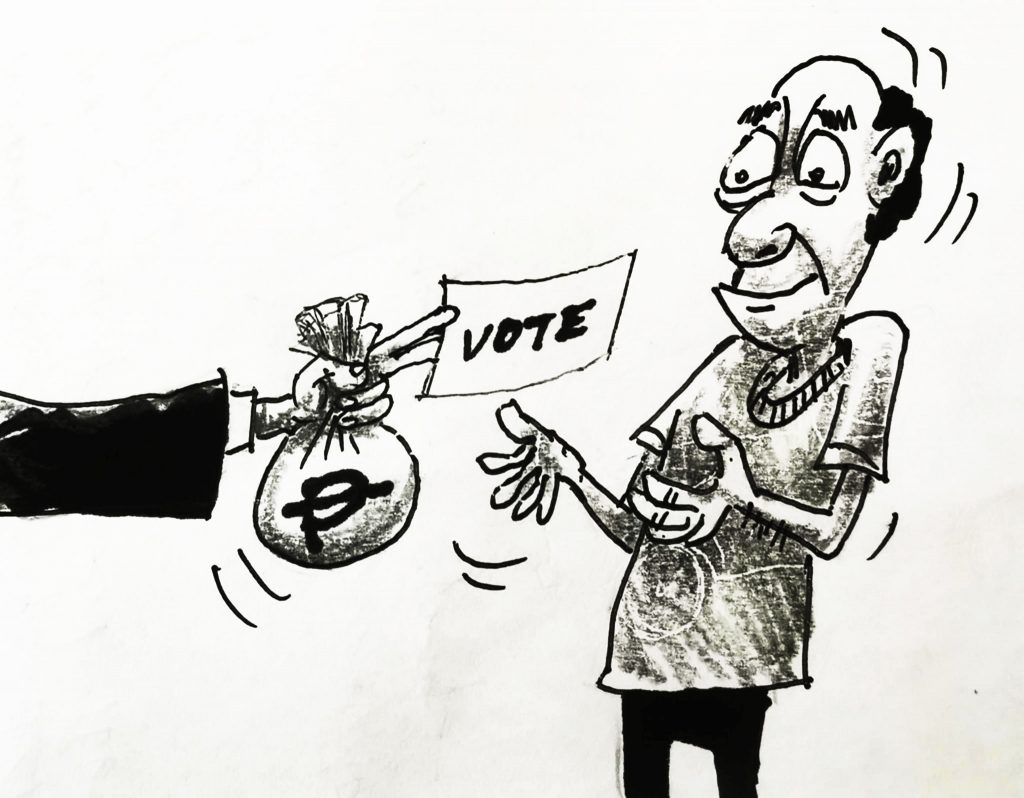Vote-buying is in full swing again, just days before election day—a blatant corruption of the electoral process and a disgrace to the idea of democracy.
What makes it worse is that many voters already know where the money comes from. It is no secret that some candidates are spending not from personal wealth but from funds likely stolen from the public treasury—money meant for social services, infrastructure, and salaries of public servants. This is robbery disguised as generosity, and voters are being bribed with what is already theirs. That people accept the money despite this knowledge does not speak of ignorance; it points to a collapse of political morality among those who ought to uphold the sanctity of the vote.
Vote-buying now takes on many forms: direct cash payments, grocery bags with the candidate’s face, fake jobs with token salaries, fuel assistance, raffle entries, and aid that conveniently flows during campaign season. In most communities, these transactions are done in plain sight, normalized by frequency and familiarity. No one flinches anymore when vote-buying is carried out through intermediaries—barangay officials, fixers, or even relatives. It has become an ecosystem of corruption, where even the language of the poor is manipulated to justify the trade: “I get nothing if I don’t accept.” The result is a political culture that rewards theft, dishonesty, and moral cowardice.
Still, money can be taken without conscience dictating the vote. It is not ideal, but given the absence of meaningful campaign regulations and enforcement, some voters choose to accept the bribe and still vote according to reason. That space for independent thought must be protected. Voters who find themselves in this ethical crossroad must remember that elections are not mere transactions. A bribe is no guarantee of loyalty. One can take the money and still choose candidates who are not thieves, who have worked, who are not peddlers of empty slogans. No one is duty-bound to repay criminality with a vote.
But this will not change unless public disgust turns into action. Bribe-givers must be exposed, documented, and charged. Campaign finance must be monitored seriously, with real penalties for overspending and hidden sources. Voters must demand debates, programs, and transparency. Schools, churches, and civil society must not remain silent. If the law is not enforced, then let it be public outrage that sets the consequence.




